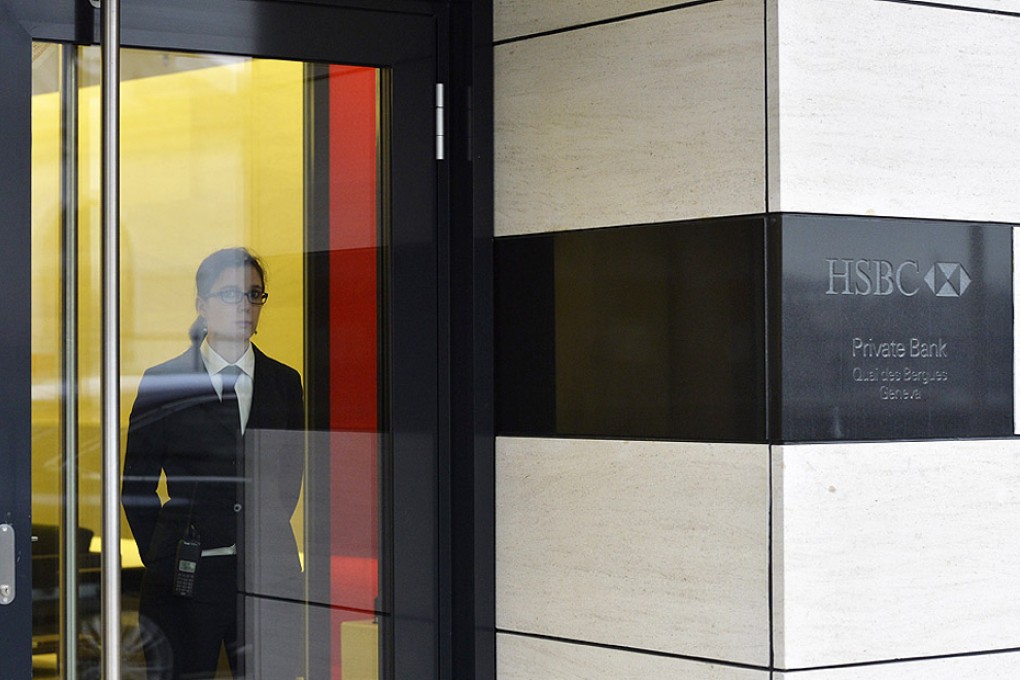Swiss prosecutors search offices of HSBC subsidiary in money-laundering probe
Prosecutors in Geneva searched the premises of HSBC’s Swiss subsidiary after launching a money-laundering investigation over a report that the bank helped hide millions of dollars for drug traffickers, arms dealers and celebrities.

Prosecutors in Geneva searched the premises of HSBC’s Swiss subsidiary on Wednesday after launching a money-laundering investigation over a report that the bank helped hide millions of dollars for drug traffickers, arms dealers and celebrities.
Prosecutors said they were investigating HSBC Private Bank (Suisse) and persons unknown for suspected aggravated money laundering. The investigation could later be extended to people suspected of committing or participating in money laundering, they said in a statement.
The investigation stemmed from “the recent published revelations” about the private bank, prosecutors said. They said a search at its premises in Geneva was carried out on Wednesday, but gave no details.
HSBC’s Swiss subsidiary could not immediately be reached for comment. Its CEO, Franco Morra, said last week that it had shut down accounts from clients who “did not meet our high standards,” and that the revelations about “historical business practices” were a reminder that the old business model of Swiss private banking was no longer acceptable.
Last week’s report from the International Consortium of Investigative Journalists and several news organisations found that the bank hid millions of dollars as it helped wealthy people around the world dodge taxes.
It was based on leaked documents covering the period up to 2007 and relating to accounts worth US$100 billion held by more than 100,000 people and legal entities from 200 countries.